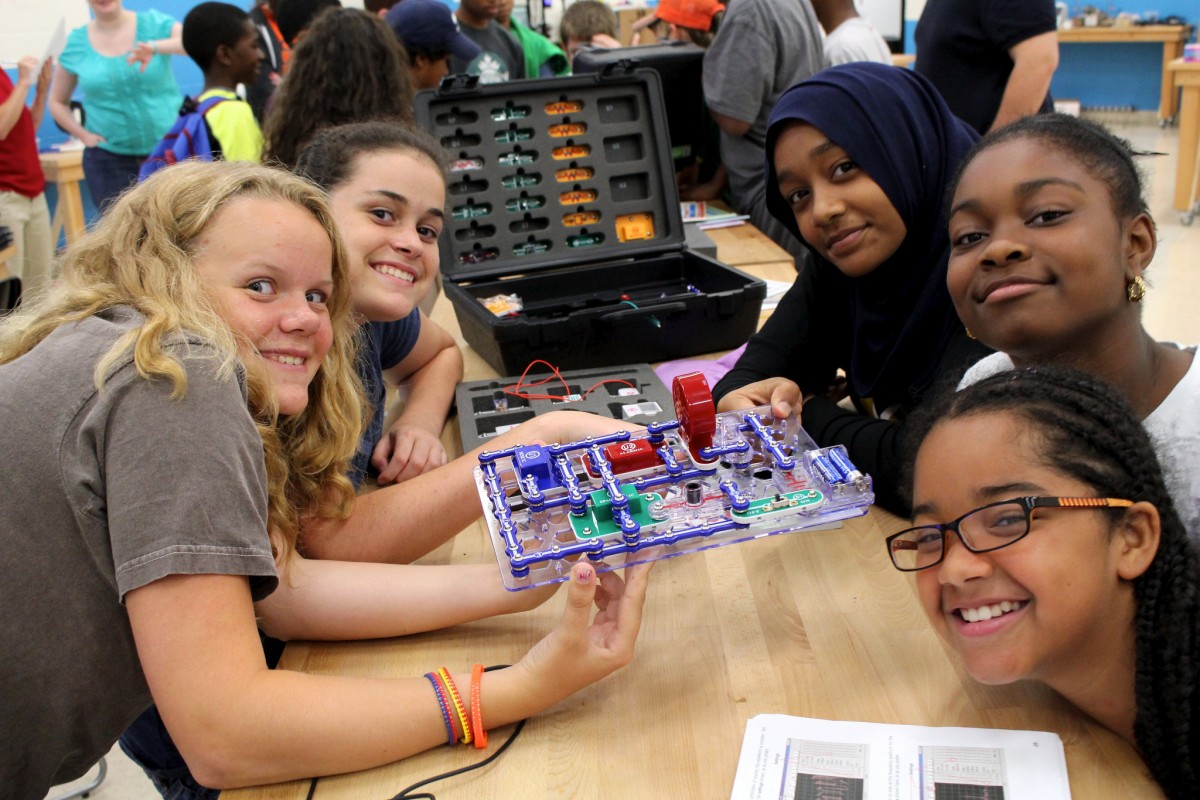While working on maker initiatives at the White House Office of Science and Technology Policy and traveling to more than 20 states over the last two years, Andrew Coy did consulting work with national nonprofits and saw examples of maker education spaces. But Digital Harbor Foundation, the Baltimore-based maker education nonprofit where he served as executive director before getting the call from the Obama administration, loomed large.
“People want to figure out how to do more of the types of things that we do here,” he said Thursday night, back at the Federal Hill tech center in a familiar Digital Harbor Foundation T-shirt and blazer in a room full of students demonstrating new creations made using the programming language Scratch. “They do pieces of them, but I do feel like we have a unique combination. The fact that we are in an old community space like a rec center. The fact that the programs have created a youth-centric experience and the fact that the kids have gone on and done amazing things…There is something unique here and we feel like we have a role to play in helping that grow.”
That opportunity is energizing Coy for the year ahead. And we will have a day-to-day role in carrying it out, as he returns to the role of executive director. With the move, Shawn Grimes, who served as executive director for the last two years, will remain with DHF as Director of Operations.
https://twitter.com/DHFBaltimore/status/954451933430992897
Plenty has happened around the tech center since Coy last held the role, highlighted in part by a visit from Adam Savage to build a sign for South By South Lawn and the opening of a new 3D print shop helmed by DHF students. Coy praised Grimes, who was initially interim executive director after Coy took the White House job, saying he has “kept the organization here and running, and doing amazing things” while showing “an amazing willingness to give.” Coy, who has maintained his Baltimore home and was board chair of the org for the last year, said he wanted to be back in the mix further as the org looked to grow in the next five years.
“There is a certain magic with the different personalities and different traits that we all bring, and being back on a daily basis just felt like the right way…to get us there,” Coy said.

Coy said he will still be splitting in-person time between DHF and travel until June, and further growing a national presence for DHF is a prime focus. On Thursday he announced that a new initiative called Expanding Tech Education that’s designed to take DHF’s programs beyond Baltimore. After receiving a grant from the National Science Foundation, DHF is piloting a program that focuses on tech education for underrepresented communities in makerspaces.
In the program, three sites will be selected for an 18-month pilot program. One site leader will come to Digital Harbor Foundation, one will have a visiting DHF staff onsite, and one will have access to online programming. The three sites will also get $25,000 worth of equipment and consumables, as well as 100 licenses for DHF’s own curriculum and 80 hours of training from DHF.
“It’s part of a larger push that we’re saying, we feel like it’s time to continue the work that we’re doing and expand the reach, even if we’re not expanding our physical footprint,” Coy said.
Andrew Coy returns to executive director role at Digital Harbor Foundation







